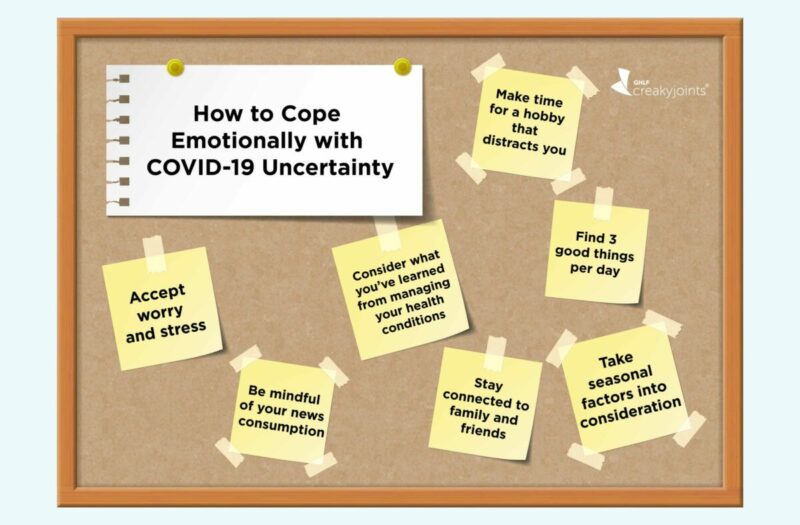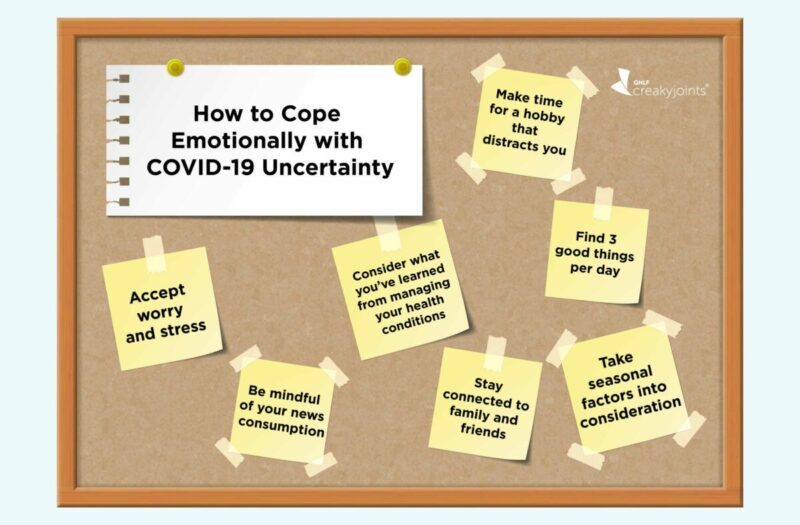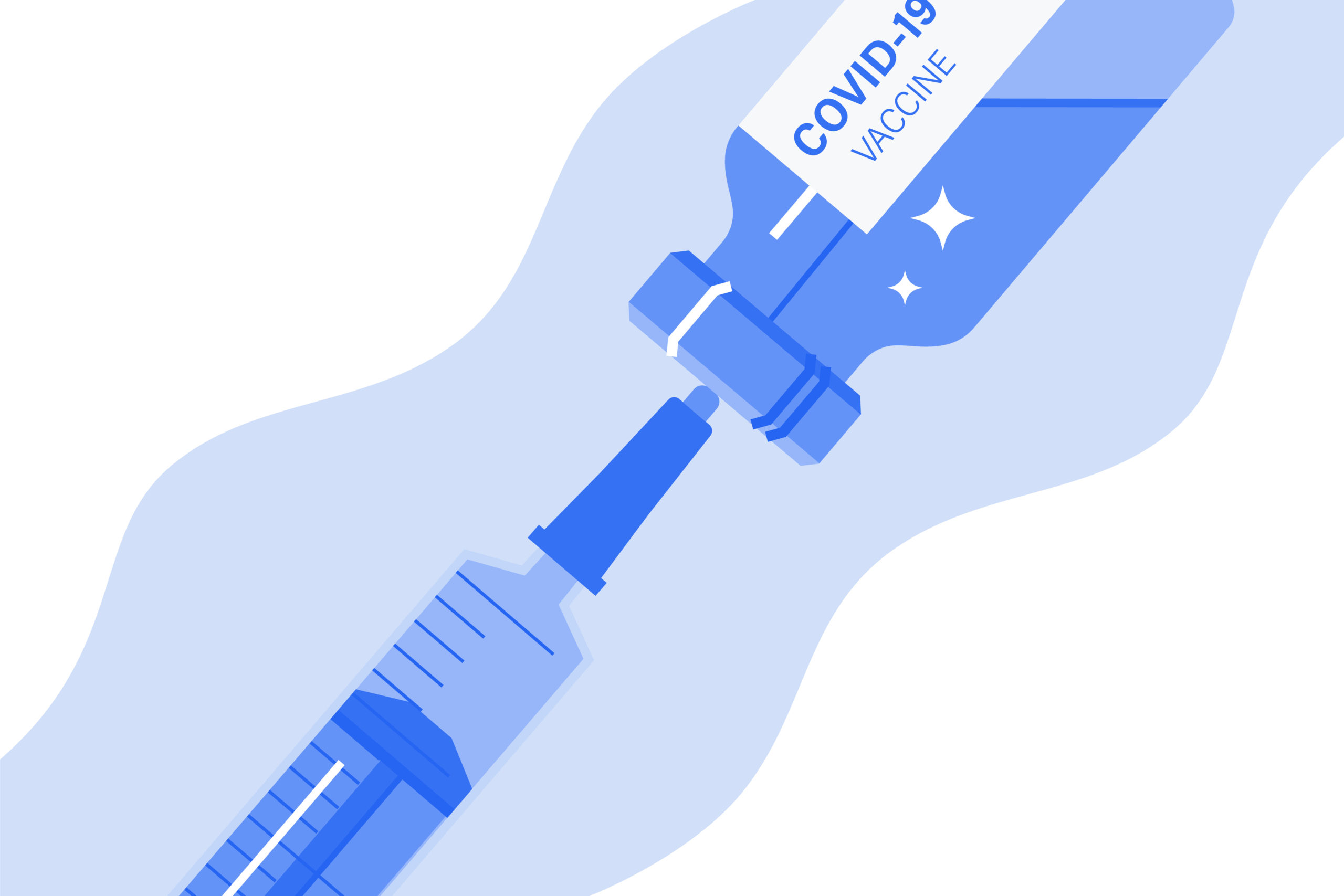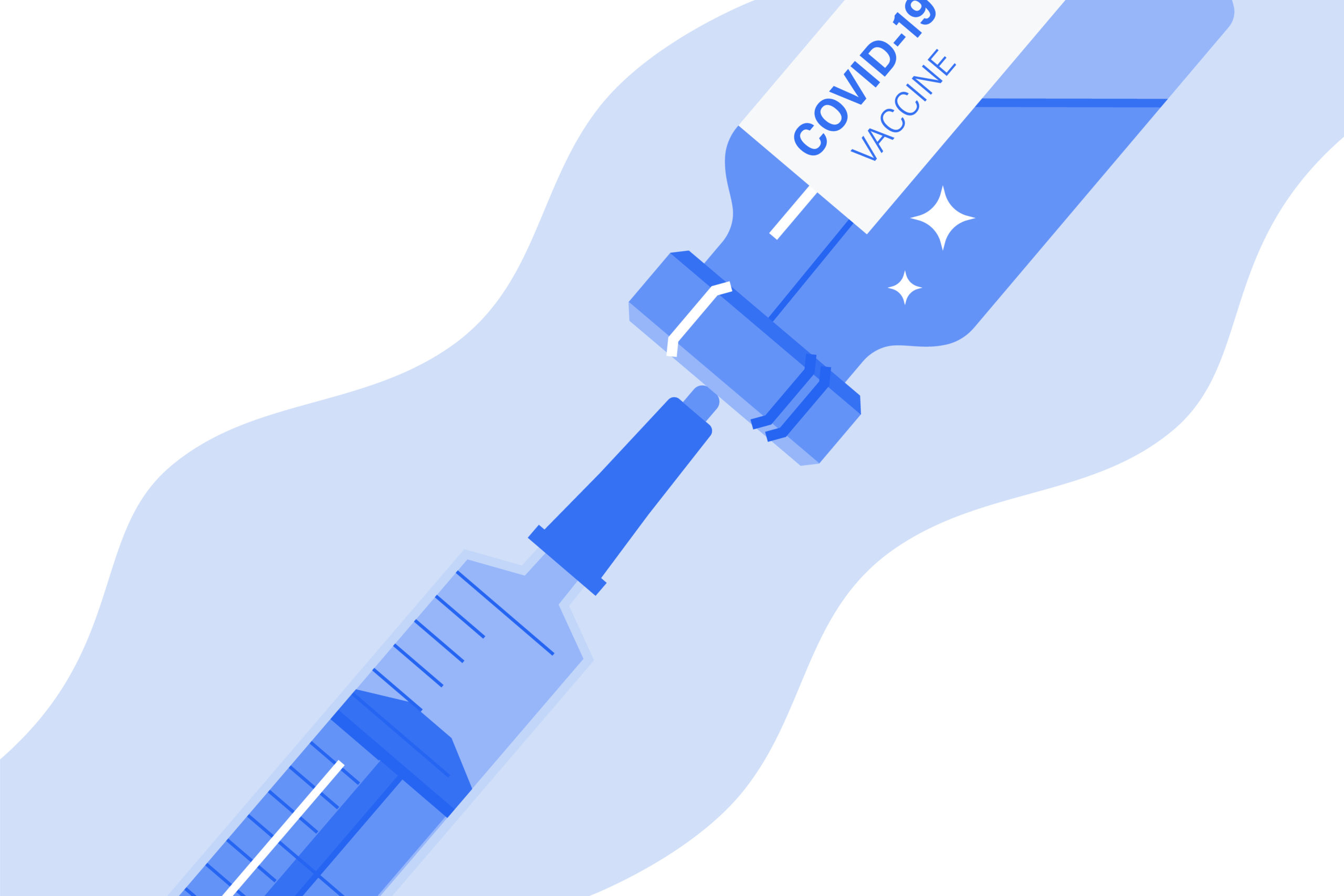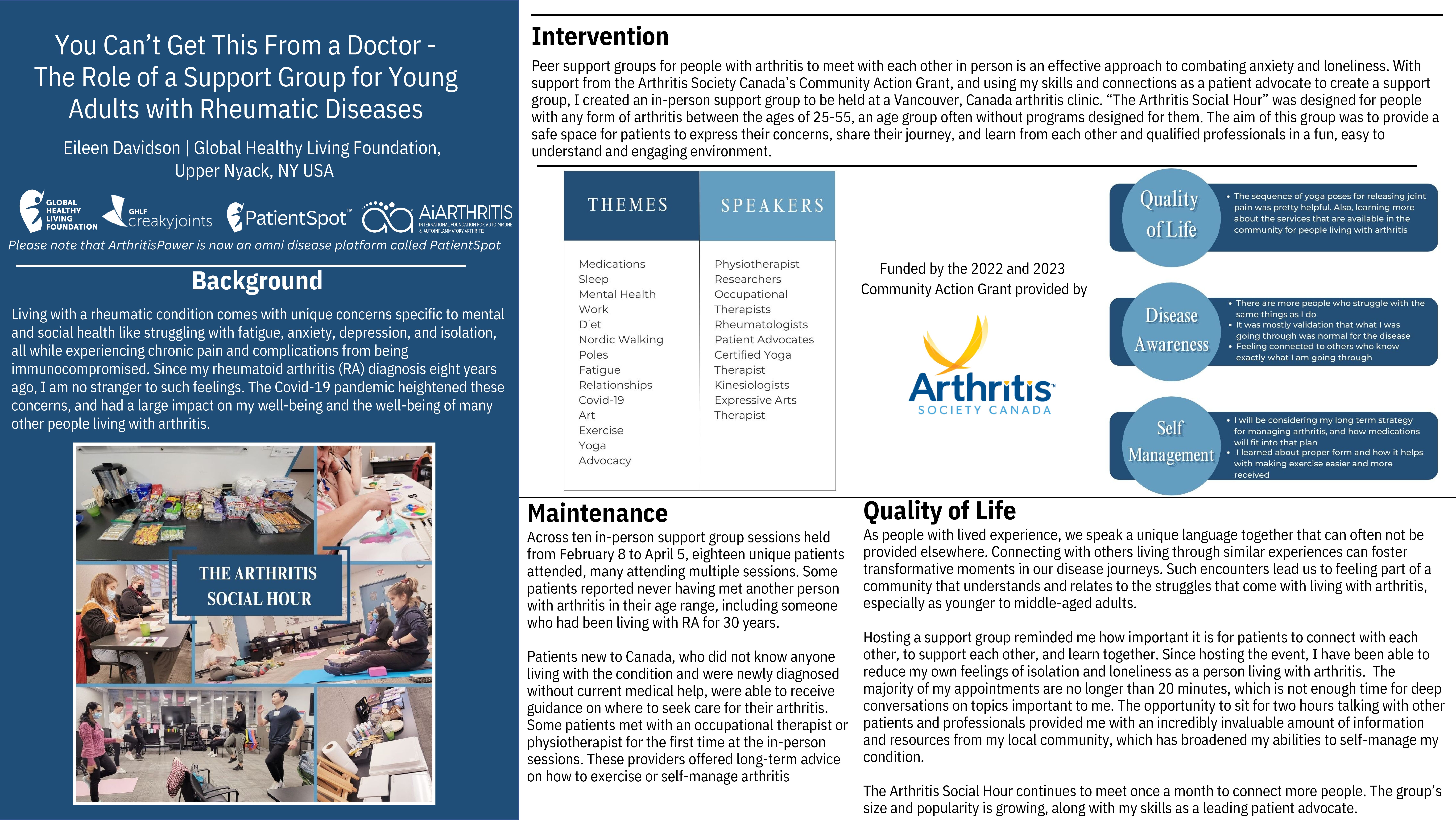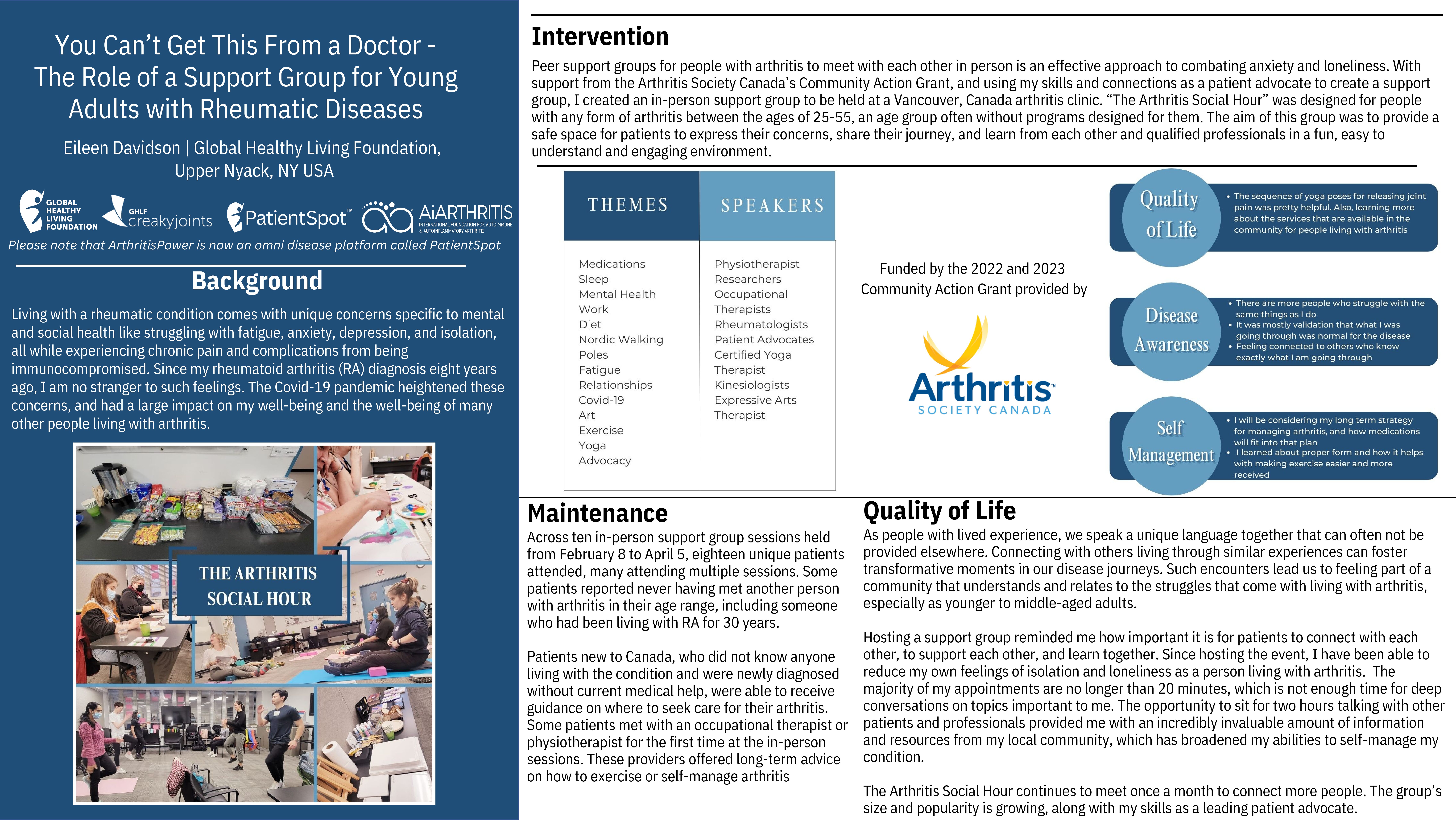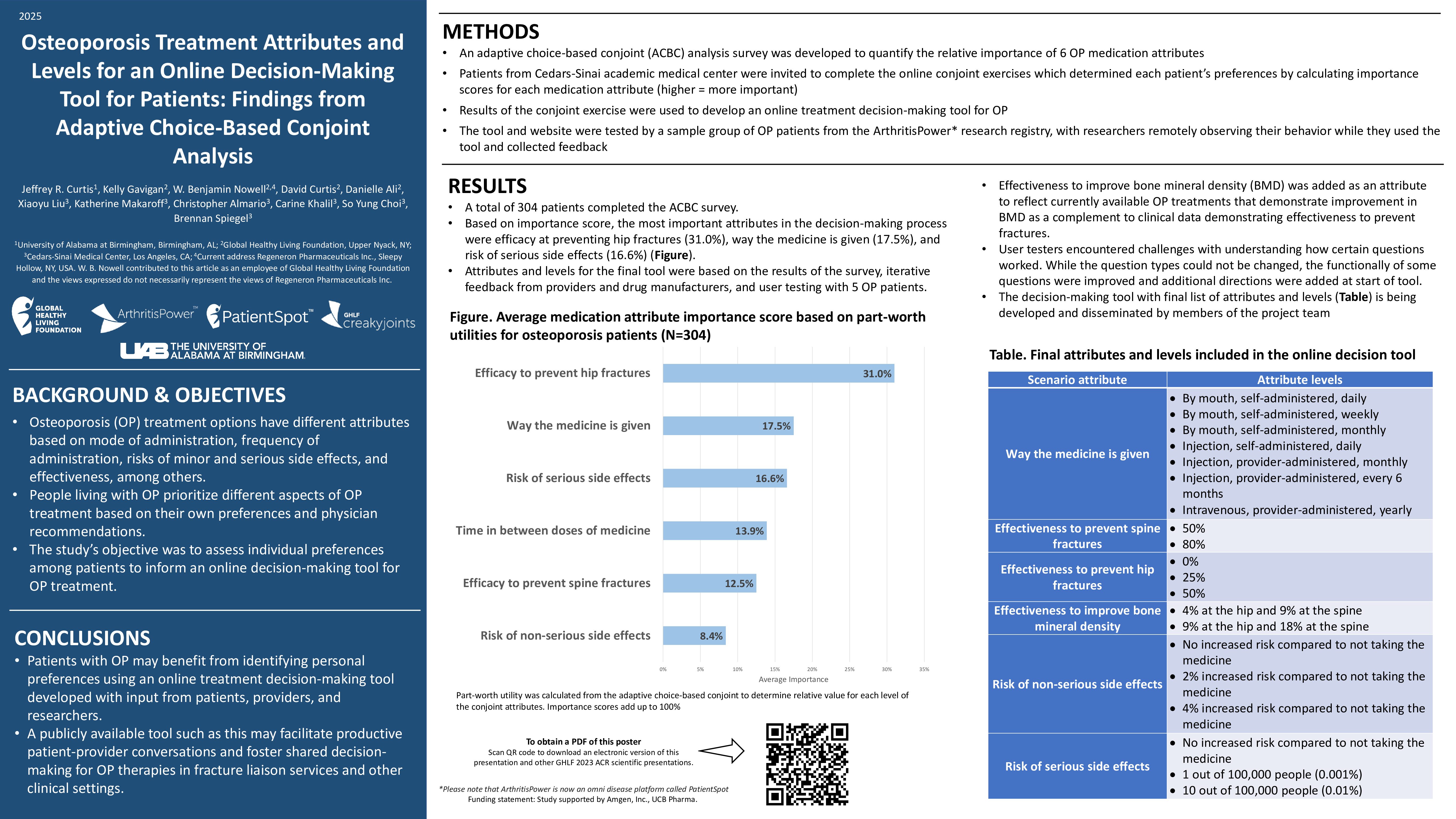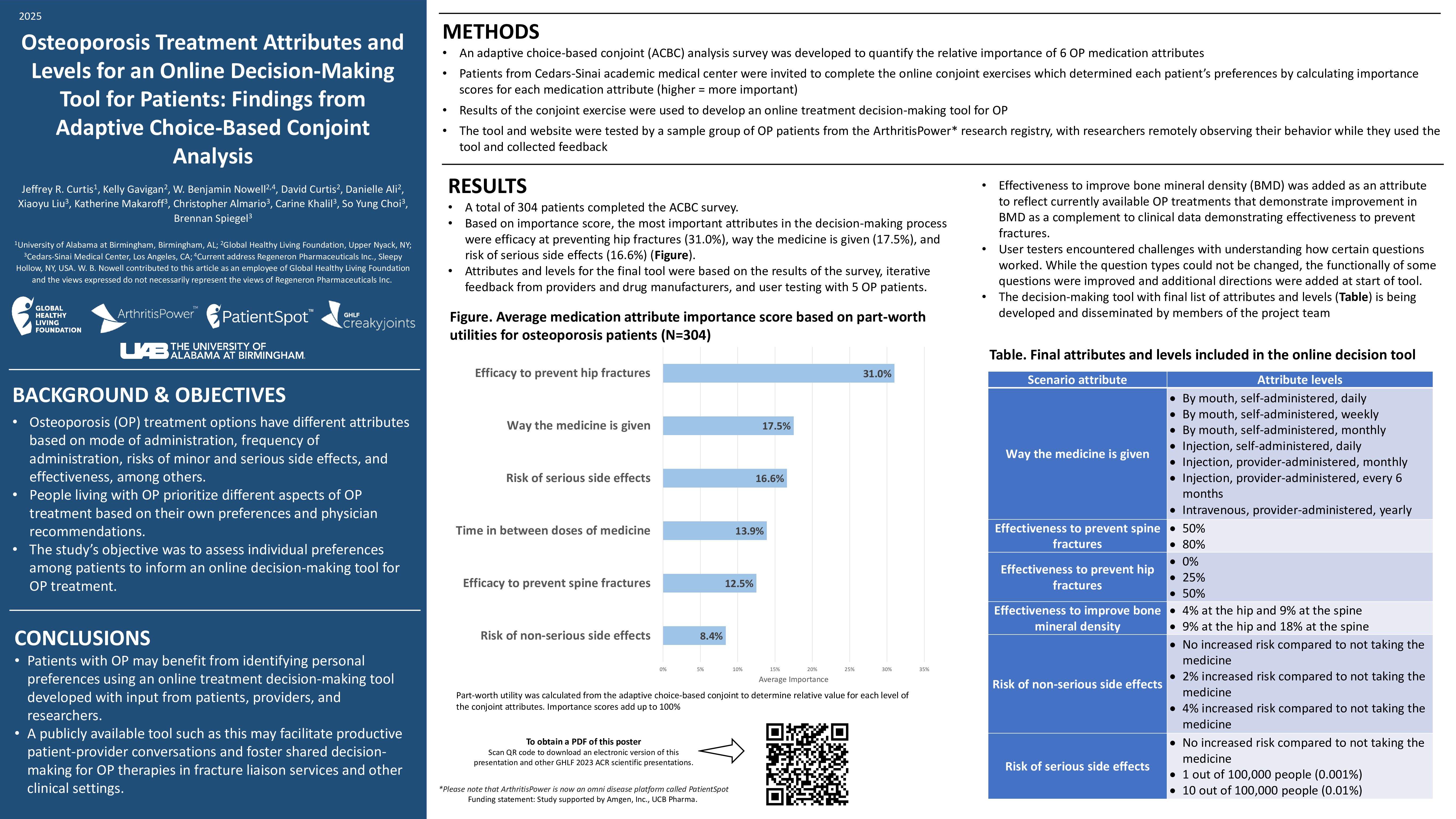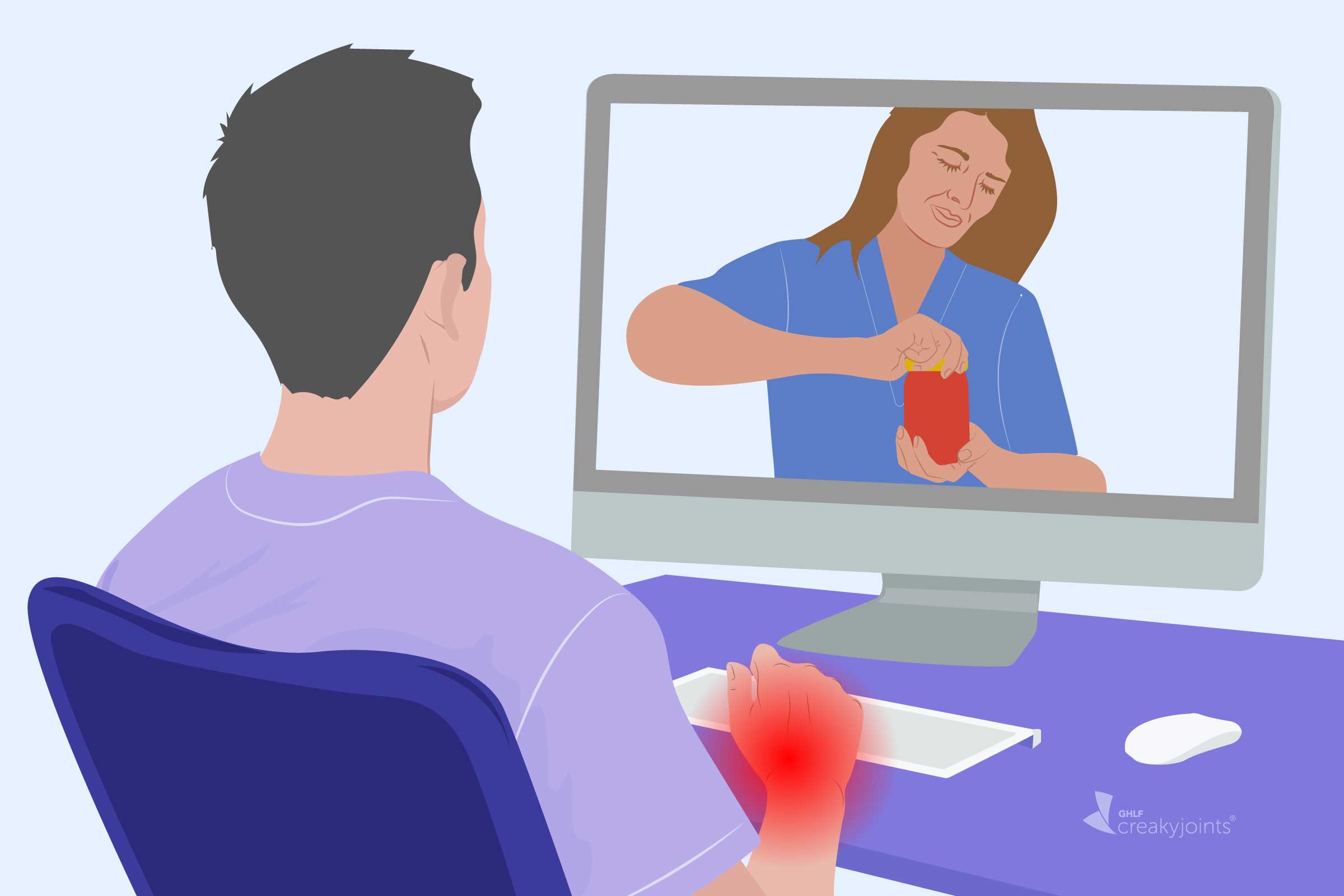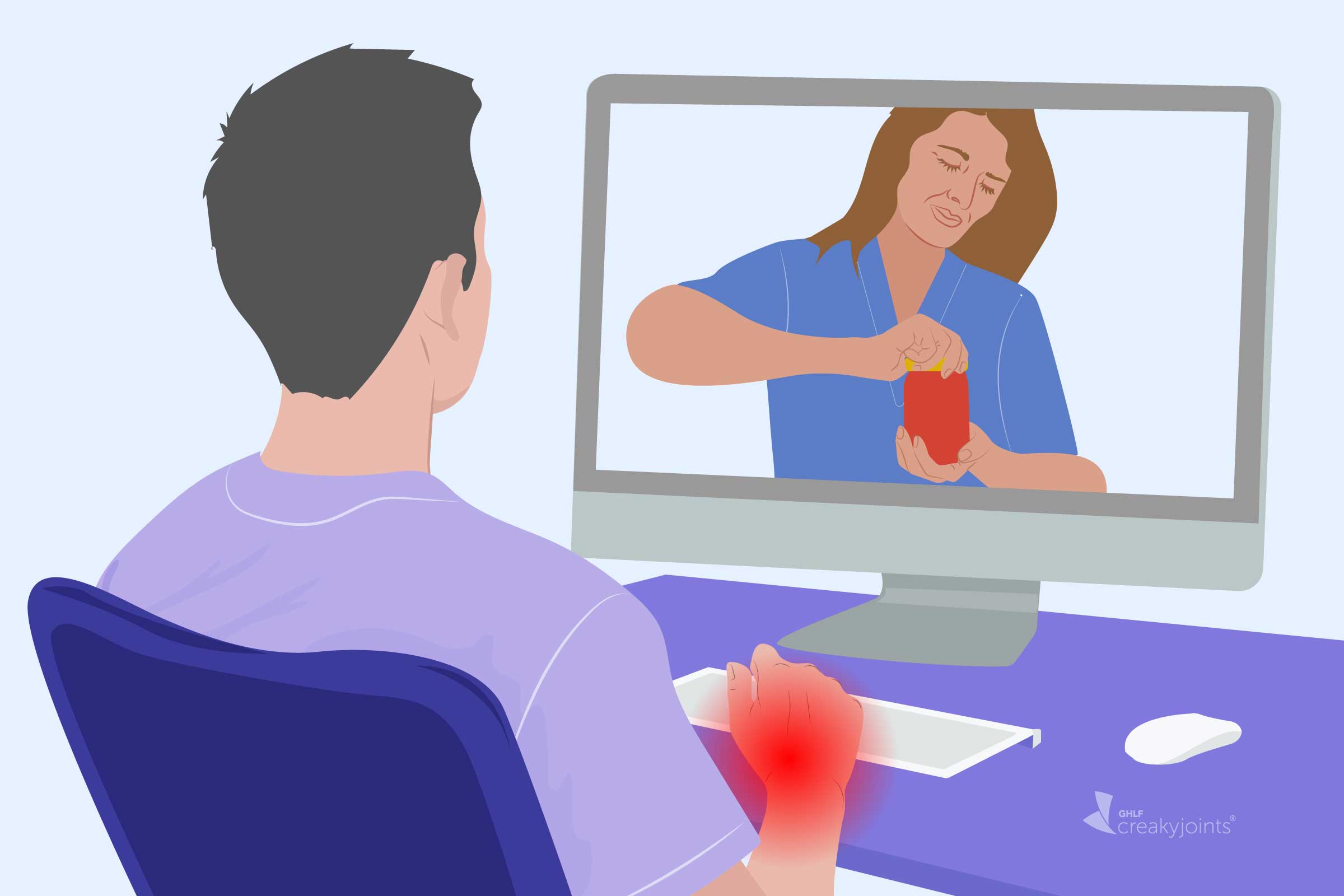Learn more about our FREE COVID-19 Patient Support Program for chronic illness patients and their loved ones.
Over the course of the past year, it felt at times like the COVID-19 pandemic was being thwarted by one source of hope after another — more people were getting fully vaccinated, additional treatment options were becoming available, and there were periods in which cases receded.
While we’re still certainly not back to square one of the pandemic (after all, we have a major preventive measure now: vaccines), it can still feel devastatingly discouraging when news emerges of increases in COVID-19 infections or hospitalizations. For some people, this can lead to a draining sense of hopelessness. When will things finally get back to some degree of “normal?” Will they ever?
These feelings may be even more exacerbated if you’re immunocompromised or high-risk for severe COVID-19. Many people have been living in fear for more than three years of getting sick with or dying from COVID. They have been strictly following safety precautions, staying home, limiting travel and social gatherings, and feeling the mental toll of isolation.
However, there are key things psychologists say you can do to cope with more distressing news about COVID-19 — and reason for hope — more than three years into the pandemic.
Accept worry and stress
The pandemic has been raging for over three years. At this point, it can be tempting to try your best to ignore new bouts of worry or stress as they creep up. However, that may only make matters worse.
“Own the uncertainty, unease, fear, and anxiety around not knowing the future,” says Kim Gorgens, PhD, Clinical Professor and Director of Continuing Education at the Graduate School of Professional Psychology at the University of Denver. “Be really vigilant to identify that and acknowledge it as part of the experience.”
Research shows that suppressing emotions can have a myriad of negative health effects. In fact, a 2013 study in the Journal of Psychosomatic Research found that emotion suppression may raise risk for earlier death, including death from cancer and cardiovascular disease.
Also, know that you’re not alone in feeling the way that you do. In a recent survey conducted by The Harris Poll on behalf of the American Psychological Association, 63 percent of respondents agreed that uncertainty about the next few months causes them stress. Meanwhile, about half (49 percent) reported that the pandemic has made planning for the future feel impossible.
“I think it is a very reasonable and expected position to be in,” says Jonathan Wong, PsyD, a psychologist at Keck Medicine of USC. “You’re allowed to be worried, first and foremost. If we can extend that understanding, acceptance, and self-compassion, I think that lowers some of the stress and pressure we put on ourselves.”
That said, accepting your fears and showing yourself self-compassion is different from sinking into negativity or adapting a “worst-case scenario” mindset.
“Be wary of things like cynicism — this is where your peer network and family can be really helpful to call you out on that stuff,” says Dr. Gorgens. “You’ve got to have each other’s backs, find your allies, and use them to your advantage.”
Stay connected to family and friends
Fostering your relationships with loved ones continues to be more important than ever. If this was top of your mind when the pandemic began (say, you established Sunday Zoom dinners), but your efforts slowly faded away over the months, reevaluate how you can connect with those in your circle.
Even if you’re being cautious about spending time with others in person, continue to seek out creative ways to meet virtually or chat over the phone.
“Going through uncertainty by yourself is physiologically and psychologically different than if you’re able to do that with someone else,” says Dr. Wong. “There is a real benefit to staying connected to family and friends during this time of uncertainty in whatever way you can.”
Here are a few ways you can continue to connect with your loved ones (even if you can’t or decide not to meet in person):
- Watch a movie together virtually (watch parties on many streaming services make this easy!)
- Make it a goal to call a family member or friend when you go outside for a walk
- Use social media to reconnect with someone you’ve lost touch with
- Take a live online class to learn more about a hobby you’re interested in, such as coffee barista classes, drawing, baking, or learning a new language
- Join an online workout class
- Connect with the CreakyJoints community on social media (check out virtual events like Global Healthy Lifestyle Events too)
Be mindful of your news consumption
If the daily news cycle is giving you added anxiety or stress, the cumulative effects of it may outweigh the benefits of being informed. When you find yourself doomscrolling — the act of taking in a flood of bad news by continuously scrolling through social media or browsing the web — give yourself a gut-check about why you keep reading.
“You might think, ‘Well, if I’m informed, then somehow I can control the situation,’” says Dr. Wong. “I think to a certain extent, that’s a very helpful way to look at things, but if you are clear on other activities that you can do to help you feel in control, then you can move on to those instead.”
For instance, you might make a list of items you can do in the next day or week (having a clear timeline is helpful, says Dr. Wong) to stay safe from COVID-19. These might include:
- Wearing a mask in public and social distancing
- Skipping the movies and catching up with friends via Zoom instead
- Getting your vaccines
Keep things in context: With many media outlets, the news is designed to catch your attention. If you find your go-to news source flaunts flashy, alarmist headlines, bookmark one to two trusted sources of information you can check on a regular basis instead — like the World Health Organization or the U.S. Centers for Disease Control and Prevention.
“Remember that scary, flashy, alarmist news sells commercials,” says Dr. Gorgens. “It’s designed to rattle us, so be really thoughtful about where you’re consuming news from.”
Make time for a hobby that distracts you
Self-care doesn’t necessarily have to be bubble baths and clay face masks. Try to do something you enjoy every day, even if it’s only for 15 minutes.
“Look for an activity that makes you lose track of time, where you’re not worried about what’s going to happen next or what you want to add to that experience,” says Dr. Wong. “That’s a self-care activity and it can be really helpful.”
When people have a hobby, they have a more positive (and less negative) mood, less stress, and lower heart rate than when they’re not engaged with a hobby, per a 2015 study of 115 participants in the Annals of Behavioral Medicine.
Reconnecting with your favorite hobbies may also help you connect with those who share your passions. Join a club — whether virtually or in person (if you’re fully vaccinated and feel comfortable doing so) — and let the activity take your mind off the worries and stress of pandemic news.
Find 3 good things per day
You may already be familiar with the practice of writing down things you’re grateful for every day. Dr. Wong recommends expanding that: Every day, write down three good things, then post your list in a visible place in your home and share it with a loved one.
“That provides a combination of shifting perspective, making it feel like it’s accessible, and then sharing that with somebody else,” says Dr. Wong. “Gratitude can be part of this, but sometimes it can be hard to pinpoint how you’re benefiting from something. When we think about three good things, it could pertain to you or to somebody else.”
Consider what you’ve learned from managing your health conditions
If you’re immunocompromised or high-risk for severe COVID-19, you certainly have additional stressors during the pandemic. But because of your history, you also have a toolkit of coping mechanisms that you can employ during this time — and inspire others to use.
“Our population has the unique experience of having faced these kinds of long-term, consecutive disappointments,” says Dr. Gorgens. “In some ways, it doesn’t necessarily make it easier to cope with, but it’s more familiar to our people. There are unique lessons that our population can share with the rest of the world.”
Whether it’s setting boundaries to protect yourself, maintaining a routine that’s tailored to your needs, or looking for the little things that bring you joy each day, leveraging those tools right now is more important than ever.
And finally, keep this in mind: There is still plenty of reason for hope. Consider how we’ve gained access to multiple vaccines to fight COVID-19 and treatments like antiviral pills. As time goes on, we’ll learn even more about how to prevent and treat this disease in the most vulnerable — and the general population.
“There is a reassurance in the application of science to modern problems,” says Dr. Gorgens. “There’s a way that the lightning speed of science offers a tremendous amount of hope.”
Get Mental Health Support
We understand how difficult it can be to cope during these uncertain times, especially when you are living with chronic illness. It is important to talk to someone who can help. You should contact your primary care physician or your insurance provider to learn about the supportive resources that are available to you. Here are other mental health resources for your reference:
- To find local support groups and services, you can call 1-800-950-NAMI (6264) or email info@nami.org. The National Alliance on Mental Illness HelpLine can be reached Monday through Friday, 10 AM to 6 PM ET.
- For a counselor or therapist in your area, view the resources page at Mental Health America: Finding Therapy.
- If your mental health concern is an emergency for you or someone else, call 911.
- If you are having suicidal thoughts or have or are thinking of hurting yourself, you should call the National Suicide Prevention Lifeline’s 24-hour toll-free crisis hotline, 1-800-273-TALK (8255).
Chapman BP, et al. Emotion Suppression and Mortality Risk Over a 12-Year Follow-up. Journal of Psychosomatic Research. August 6, 2013. doi: http://www.doi.org/10.1016/j.jpsychores.2013.07.014.
Everything You Need to Know About Doomscrolling and How to Avoid It. Cleveland Clinic. September 1, 2020. https://health.clevelandclinic.org/everything-you-need-to-know-about-doomscrolling-and-how-to-avoid-it/.
Interview with Jonathan Wong, PsyD, a psychologist at Keck Medicine of USC
Interview with Kim Gorgens, PhD, Clinical Professor and Director of Continuing Education at the Graduate School of Professional Psychology at the University of Denver
Seasonal Affective Disorder (SAD). Mayo Clinic. December 14, 2021. https://www.mayoclinic.org/diseases-conditions/seasonal-affective-disorder/symptoms-causes/syc-20364651.
Stress and Decision-Making During the Pandemic. American Psychological Association. October 26, 2021. https://www.apa.org/news/press/releases/stress/2021/october-decision-making.
Zawadzki MJ, et al. Real-Time Associations Between Engaging in Leisure and Daily Health and Well-Being. Annals of Behavioral Medicine. doi: http://www.doi.org/10.1007/s12160-015-9694-3.

